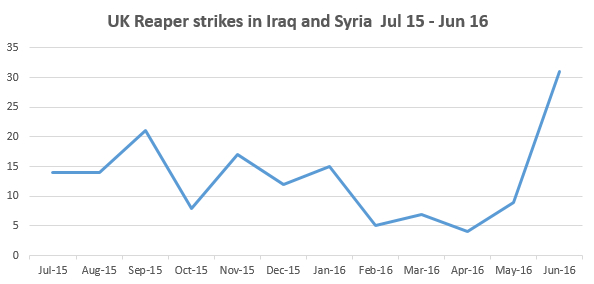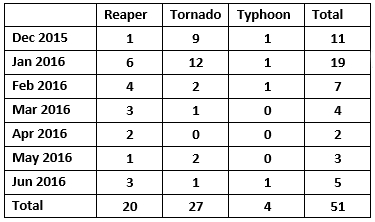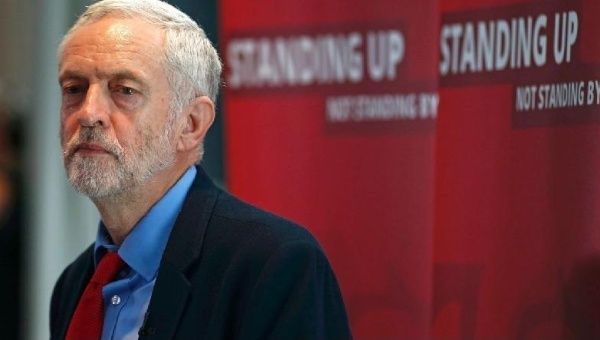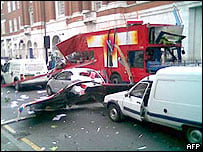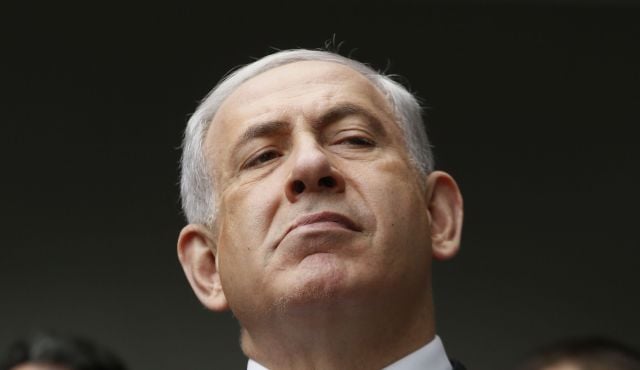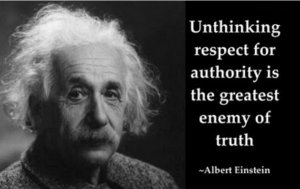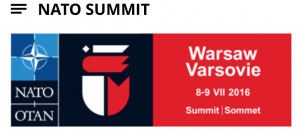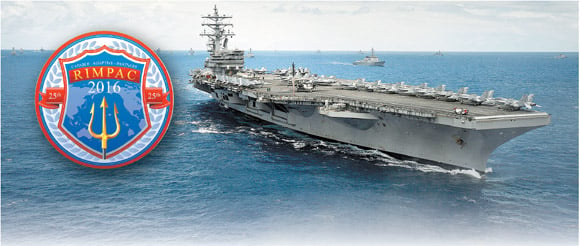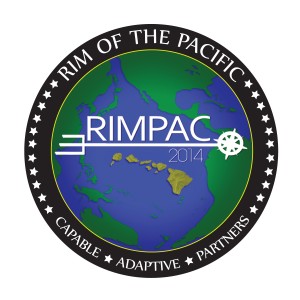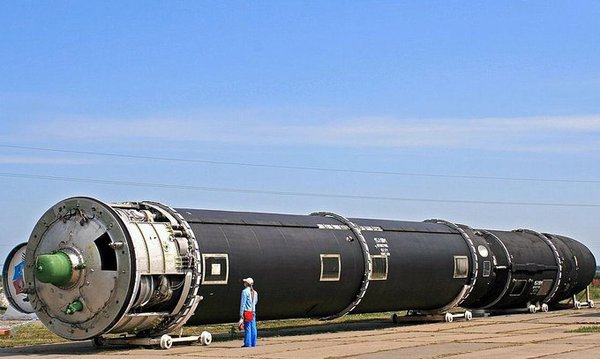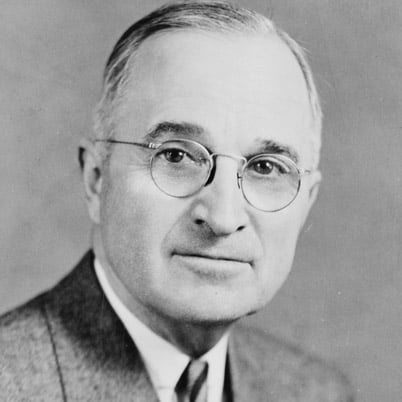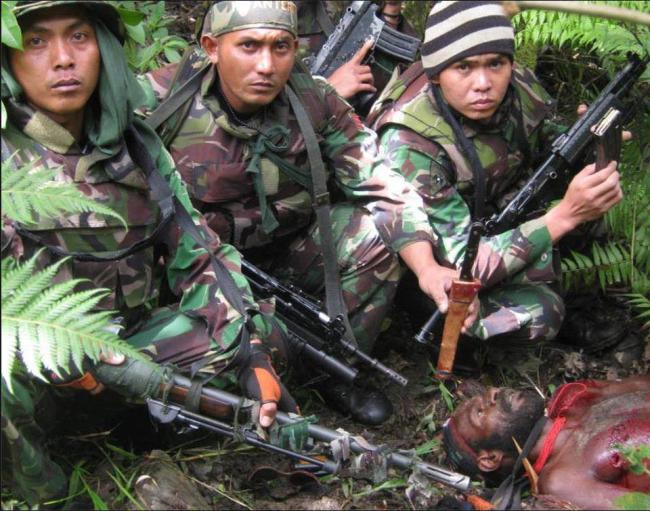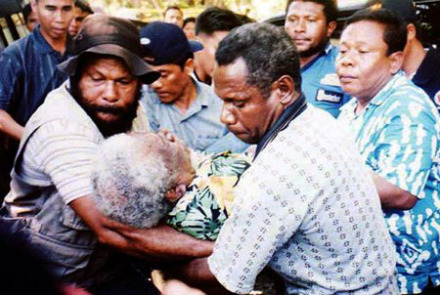Why a Brexit revolution?
June 23rd 2016 is the day that may change history. Not only in Britain itself but also in Europe as a whole––which is now controlled by the European branch of the Transnational Elite (TE), that is the network of transnational political, economic, media and cultural elites, mainly based in the G7 countries which run the world. The British referendum was a terrific slap in the faces, not only of the Euro-elites, but also the whole Transnational Elite and the neoliberal globalization run by it. That is, a globalization that has already pushed billions of people around the world (including the British) to economic and social degradation, or, alternatively, to physical extermination and dislocation through the wars unleashed during its rule (from Yugoslavia to Iraq and Afghanistan, and from Libya and Syria to Ukraine).[1]
It was a terrific slap because the British people did not buckle, despite the brutal campaign by the Transnational Elite to force them, using all means at its disposal, including the mass media controlled by them.[2] The `Project Fear dismally failed because, as the flagship of the globalist “Left” pointed out, its “fundamental mistake was that it did not understand that far too many Britons, already living insecure and uncertain lives, felt they had little to lose… the typical pay packet is the same now as at the time of the 2008 crash.”[3] Even the war criminal, Nobel Peace laureate Obama, was mobilized to go to London to declare that Britain will suffer disaster if it leaves the EU (clearly worried by the possible serious ramifications of Brexit with respect to the forthcoming US elections), while the equally criminal Tusk (who, after having organized the murderous coup in Ukraine as prime minister of Poland, was rewarded with the Presidency of the European Council!) spoke about a possible destruction of Western civilization following a Brexit,[4] unashamedly identifying the latter with he criminal NWO of which he is a minor apparatchik.
Perhaps one of the best descriptions of the revolutionary nature of Brexit was given by the Observer, which together with its sister paper the Guardian play a leading role in the globalist “Left”, i.e. the kind of Left which is fully integrated into the NWO not questioning its main institutions, such as the EU, the WTO, TTIP and TPP and NATO:
Anyone who has witnessed the aftermath of a super typhoon in countries such as the Philippines or seen the devastation caused by the hurricanes that occasionally ravage the Caribbean and southern US would readily recognize the dramatically altered political, economic and social landscape of the United Kingdom following last week’s thunderous vote to leave the European Union. The damage caused by this constitutional mega-storm is ubiquitous, unquantifiable and, in some key instances, irreparable. The political establishment, including the leaders of the two main parties, David Cameron and Jeremy Corbyn, and the Brussels hierarchy, was squashed flat. The hitherto dominant influence of the City, big business, financial institutions, the US government, international watchdogs such as the IMF and myriad economic experts was contemptuously blown aside.[5]
Even more significant is the direct connection the paper makes with neoliberal globalization, although the conclusion it draws is the usual one expected from this kind of ”Left”, i.e.––to exonerate the NWO and the EU itself, as “possibly the greatest democratic achievement of the postwar era” and to directly blame the ‘bad’ Tory governments (but not necessarily also the equal “bad” Blairite governments!):
So what about globalization? How have free markets benefited the steel worker put out of work by the EU-sanctioned dumping of cheap Chinese products? Seen from Wearside or the Welsh valleys, booming London and the southeast, with its Monopoly money property prices and £70 a head restaurants, resembles Gold rush City, a foreign and hostile land. Does anybody in Westminster understand or even care? No, not really, so these alienated voters seemed to believe…For 30 years, the “leftbehind” (the working poor, the “strivers”, the zero-hours workers) have waited for a new economic reality based on fairness and equality to rebalance the effects of late capitalism as it advantaged a smaller and smaller number of people with grotesque income inequalities”. [6]
Then it was the turn of Guardian, the flagship of the globalist “Left”, to expand on the significance of globalization and put the blame directly on it (in order to draw, of course, the wrong conclusions!) Thus, beginning with a brief history of globalization, which started in the late 1970s and accelerated throughout 1980s and reached a climax with the collapse of ‘actually existing socialism in Eastern Europe at the end of the decade and the beginning of the 1990s, it described the essence of globalization as “the free movement of capital, people and goods; trickle-down economics; a much diminished role for nation states; and a belief that market forces, now unleashed, were inexorable”.[7] However, the obvious aim of the paper was simply to exonerate the EU itself (as a NWO institution) and simply put the blame on its bad practices and policies:
In the age of globalization, the idea was that a more integrated Europe would collectively serve as the bulwark that nation states could no longer provide. Britain, France, Germany or Italy could not individually resist the power of transnational capital, but the EU potentially could. The way forward was clear. Move on from a single market to a single currency, a single banking system, a single budget and eventually a single political entity. That dream is now over. As Charles Grant, director of the Centre for European Reform think-tank, put it: “Brexit is a momentous event in the history of Europe and from now on the narrative will be one of disintegration not integration…The reason is obvious. Europe has failed to fulfill the historic role allocated to it.”[8]
So, although Guardian admits that Britain’s rejection of the EU was, in fact, a protest against the economic model that has been in place for the past three decades, it is clear that its real aim was simply to criticize the EU as not being “progressive enough”, following the well trodden path of Varoufakis,[9] the well known adviser of Jeremy Corbyn, the Labor Party leader! All that the globalist “Left” had to do, according to this completely disorienting view, was to introduce some reforms to cover its democratic “deficit”, without of course touching the cherished by the EU “4 freedoms” in the movement of capital, labor, goods and services. In other words, without making the life of multinational corporations, which control the world economy, more difficult in any sense of the word. In fact, the entire globalist “Left” has engaged in a huge attempt of gross deception of the victims of globalization when it argued that globalization is not by necessity neoliberal but that it is instead the ‘bad’ policy of some ‘bad’ political parties and economists! Yet, it can be shown that no other ‘good’ globalization is possible within a system of open and liberalized markets for capital, commodities and labor. Therefore, this is in fact a resurgence of the old deceptive Port Allegre slogan of the World Social Forum that “another world is possible’ even within the present globalization, as long as the good Left politicians replace the present bad ones.
Needless to add that the growing anger at the EU is not simply a British phenomenon. The victims of globalization all over Europe have begun rising as early as 2011 in Greece and then Spain but, unfortunately, due to the recent past of these countries with a military junta in the former case and fascism in the latter, the globalist “Left” (Syriza and Podemos) managed to control the rising popular indignation, deceiving the peoples that it was just the austerity policies that the “bad” Germans imposed which was the cause of their misery. All that was needed therefore was to elect con artists of Tsipras kind (who at present is busy imposing arguably the worst kind of neoliberal policies ever applied in any country of the world––all for the sake of the people of course!) so that good days come back again. Fortunately, in the rest of Europe this kind of “Left” is politically bankrupt and people in France have been on the roads for several months now against the measures to “liberalize” the labor market which another con artist, the “socialist” Hollande, has been trying to impose. Even in the USA, Donald Trump successfully appealed to the victims of globalization there with slogans against it. Therefore, the British Brexit revolution, far from being an isolated phenomenon, reflects a world phenomenon. This is because Brexit is indeed a class issue––although we have to re-define ‘class’ to give it a broader sense than the traditional Marxist sense, more appropriate to the globalization era, as I tried to do elsewhere. [10]
The fact that Brexit is in fact a class issue, reflecting the popular reaction to the class nature of globalization, has even prompted some of the world’s most powerful investment houses to turn their focus to inequality, with both Bank of America and the international investment firm Pimco warning their clients about the growing risks resulting from the fact that the gulf between rich and poor has been continually rising in the globalization era. Thus, Joachim Fels, global economic adviser at Pimco, wrote in a research note: “The vote in the UK is part of a wider, more global, backlash against the establishment, rising inequality and globalization.[11] Similarly, in a research note entitled “Brexit and the war on inequality”, Bank of America strategists stress, “Brexit is thus far the biggest electoral riposte to our age of inequality.[12]
All this points once more to the bankruptcy of the “Left”, which still talks about imperialism, ignoring globalization, as if we are still at the beginning of the 20th century when nation-states were still dominant. A typical example of this is an archaic ‘Marxist’ Left supporter who, completely ignorant of my analysis on imperialism, has discovered that ’what’s missing from Fotopoulos’s argument is any reference to Imperialism’![13]
 Clearly, Brexit was very much a popular “revolution” as the entire movement was a movement “from below”, from the victims of globalization themselves. This was inevitable once their “natural” leaders, i.e. the Left parties (Labor party, Green party etc.) and even their own Trade Union leaders, apart from very few honorable exceptions, declared themselves against Brexit on the basis of a variety of excuses, as we shall see next, usually centered around the issue of immigration. Not surprisingly, even when the parties of the supposedly antisystemic Left, reluctantly and usually for tactical reasons supported Brexit (e.g. the Trotskyite SWP) they never uttered a single word against globalization, the Transnational Elite and its institutions! Yet, the Transnational Elite has a much better picture than the “Left” of the real significance of Brexit, as George Soros, a significant member of the Transnational Elite, made clear in his first article after Brexit, adding a menacing threat:
Clearly, Brexit was very much a popular “revolution” as the entire movement was a movement “from below”, from the victims of globalization themselves. This was inevitable once their “natural” leaders, i.e. the Left parties (Labor party, Green party etc.) and even their own Trade Union leaders, apart from very few honorable exceptions, declared themselves against Brexit on the basis of a variety of excuses, as we shall see next, usually centered around the issue of immigration. Not surprisingly, even when the parties of the supposedly antisystemic Left, reluctantly and usually for tactical reasons supported Brexit (e.g. the Trotskyite SWP) they never uttered a single word against globalization, the Transnational Elite and its institutions! Yet, the Transnational Elite has a much better picture than the “Left” of the real significance of Brexit, as George Soros, a significant member of the Transnational Elite, made clear in his first article after Brexit, adding a menacing threat:
Now the catastrophic scenario that many feared has materialized, making the disintegration of the EU practically irreversible…I am convinced that as the consequences of Brexit unfold in the weeks and months ahead, more and more people will join us.[14]
In fact, it was a referendum in which an unprecedented number of voters took part, and in which well over a million more people voted for change than for the status quo on UK’s membership of the EU. Two important characteristics of the referendum were usually minimized by the Transnational Elite’s media: first, the geographical pattern of vote and its high significance with respect to the class nature of the Brexit vote and, second, the age pattern of the vote and its significance with respect to ideological and cultural globalization.
As regards, first, the geographical pattern of the vote, the way in which people voted is a clear indication of the fact that this was a ‘revolution from below’ of the victims of globalization. Thus, in England, London was the only region to vote for Remain, by 60 to 40 percent. Every other region went to Leave, by 58 percent in Yorkshire and Humberside, 54 percent in the North West, 59 percent in the West Midlands, and more than 50 percent in both the South East and South West. Yet, it is well known that the areas in England and Wales where Brexit was victorious are exactly the areas populated by the victims of globalization, i.e. the victims of the criminal de-industrialization imposed by the multinational corporations when they moved en masse to the ‘exotic’ Chinese and Indian paradises. That is, the places offering multinationals a very disciplined work force paid survival wages, as well as all possible tax concessions etc. possible, in order to induce them to invest and create a pseudo kind of development. This was the kind of development that led to the emergence of a few hundred billionaires in those countries while the mass of the population has suffered the effects of economic as well environmental strangulation. In view of the above it is not therefore surprising that even Gordon Brown, i.e. Tony Blair’s heir in the throne of the Labor Party, who continued his criminal policies, felt the need to make the following statement in the aftermath of the referendum:
The elephant in the room is globalization. And the most obvious manifestation of the world we have lost is the hollowing out of our industrial towns as a result of the collapse of manufacturing in the face of Asian competition. These towns are home to a disproportionate share of the semi-skilled workers who have, not surprisingly, become recruits to an anti-globalization movement whose lightning rod is migration.[15]
Naturally, the “solution” proposed by Gordon Brown was another Commission of Inquiry, this time on migration, not omitting to express the Transnational Elite’s line that “we have to decide that we cannot simply be an antiglobalization party that exploits grievances but offers no answers (!)[16]
As regards London, where a second generation Pakistani yuppie and fanatic supporter of Bremain was elected Mayor a few months ago, (now campaigning for an ‘independent” London within the EU!) it is of course populated by the economic elites and the upper part of the middle class, while the victims of globalization living there are usually young immigrants who have adopted a British version of the “American dream”. In other words, the Bremain victory in London is due to the fact that the majority of the population there consists of either those benefiting from globalization who are concentrated in the capital that attracts the relevant lines of activity (finance, management and services in general), or of those immigrants or descendants of them, who may or may not belong to the beneficiaries of globalization but have been persuaded by the EU propaganda that a Brexit could somehow lead to their expulsion from UK.
As regards, second, the age distribution of the vote, the most significant exception to the voting pattern described above was among those under the age of 24, where the Remain vote was 75 percent in favor.[17] In fact, Bremain was supported by an a-political youth—the perfect subject for manipulation by the elites and its media (including social media) — who are brainwashed by ideological and cultural globalization. Thus, it has been estimated that while there was a turnout of 82% among those aged 55 and over, barely a third of the 18-24 age group bothered to cast their vote. But those youngsters who bothered to vote were fanatical opponents of Brexit (and today are demonstrating against it with the direct or indirect support of the local elites, as well as of the Transnational Elite), though when asked to explain their fanatical support for the EU they were usually at a loss to explain their stand. The following description in Dominic Lawson’s Sunday Times column is characteristic:
The journalist Melissa Kite described in the Catholic Herald being accosted by neighbors who, when they discovered she was voting “leave”, began to rant at her that she was on the side of the killer of the Labor MP Jo Cox. And one of them told Kite: “I don’t understand any of the detail of the EU, but I know whose side I’m on…. A similar sort of rage has been directed at “the old”, for voting in such vast numbers to leave. Speaking of voters dragging themselves to the ballot box, a friend of mine saw an elderly woman moving inch by agonizing inch to the voting booth. If she had voted for “remain”, it might easily have been described as “heroic” in a BBC report, but if the old lady voted for “leave”, it is categorized as “selfish”.[18]
No wonder therefore that the EU elites fully support further lowering the age of qualifying for voting (Tsipras has already pioneered a new electoral law to this effect). This is hardly surprising given that SYRIZA—as well as Podemos in Spain—owe much of their electoral appeal to an a-political (or pseudo-political) youth essentially supporting the status quo (including even the EU!) and demanding its reform. This, in contrast, to the really radicalized and mostly antisystemic youth in May 68, as well as the anti-globalization youth in Seattle and Genova, before it was suppressed by the pseudo ’Left’ of the World Social Forum[19]
The smearing of the Brexit revolution as a prelude to a counter-revolution
In the aftermath of the Brexit revolution a new smear campaign began by all those at the service of the NWO of neoliberal globalization aiming, directly or indirectly, to justify the parallel counter-revolution going on we shall see next, through which the Transnational Elite attempts to reverse the results of the referendum.
Some talked about the return of nationalism and therefore of nationalist wars, which plagued Europe, particularly in the 20th century. Others talked about the victory of German “imperialism” which attempts to reverse the results of its defeats in the last two world wars, while still others talked about the nostalgia for British imperialism among many of the voters for Brexit. Most however of the “serious” commentators stressed either the supposed re-emergence of nationalism, or, alternatively, the assumed rise of anti-immigration feelings and the related rise of Islamophobia and xenophobia in general. In fact, as I will try to show briefly, these are all parts of a huge propaganda campaign orchestrated by the Transnational Elite and its media, NGOs etc. to divert attention from the real nature of Brexit that I described above. That is, the fact that Brexit is a victory of the victims of globalization against the NWO and as such it is a class victory, although ‘class’ has to be redefined to include not just the old working class which has diminished in Europe in general and Britain in particular as a result of de-industrialization––which is of course, also, a by-product of globalization.
1. Brexit and nationalism
As regards, first, the supposed re-emergence of nationalism, those who talk about the revival of nationalism and possible national conflicts have no clue (or pretend they don’t) that nationalism ended with the phasing out of economic and national sovereignty of all those states that were integrated into the NWO, i.e. most of the world. Furthermore, as I showed elsewhere,[20] the nationalist movements of the 19th and 20th century have very little, if anything, to do with the neo-nationalist movements rising today, such as UKIP in Britain and FN (Le Pen’s movement) in France. The former movements aimed to create nation-states, usually following a national liberation struggle, whereas the latter aim to restore the economic and national sovereignty lost in the globalization process. Therefore, by their nature, neo-nationalist movements are not aggressive movements against other peoples living beyond their borders but essentially defensive moments fighting for the fundamental right of any nation for self-determination, which is under severe attack by the nations controlling political-economic unions like the EU, which is ‘justified’ under the pretext of creating a supranational super-state that will protect the peoples’ rights better against globalization than any single nation-state could do acting alone.
However, this has already been proven a pure fantasy to deceive European peoples given that the EU is, in fact, the main organ of the NWO in the European area, as its “constitution” since the Maastricht Treaty, and the subsequent Treaties that established the basic globalization principle of the ‘4 freedoms, clearly showed. In other words, it is through the EU that all legislation to impose the opening and ‘liberalization’ of all markets (labor, capital and commodities) has gone through. Also, as I showed in the past, it was through the integration into the EU that the productive structure of countries like Greece had been destroyed and, as a result, the Greek people has been transformed––thanks to the criminal policies presently employed by the pseudo-“Left” of Syriza––into a beggar of financial capital in order to secure its very survival.[21] A similar story could be told about countries such as Portugal and Spain, which have also lost their economic sovereignty, following their entry into the EU.
Last, but not least, neo-nationalist movements are not purely ‘nationalist’ movements, which ignore class issues and fight only for the “nation”, as used to be the case wit the old nationalist movements. Thus, unlike old nationalism, neo-nationalism raises also demands that in the past were an essential part of the Left agenda, such as the demand for greater equality (within the nation-state and between nation-states), the demand to minimize the power of the elites, even anti-war demands, taking sides usually in favor of informal patriotic movements such as the Russian one (which also fights against its own globalist “Left” that its supported by Russian oligarchs, the media and so on).[22] In other words, neo-nationalist movements become themselves, even by default, class movements when they fight, directly or indirectly, against globalization, which as we saw above is a class issue.
So, on the one hand, are the pro-globalization movements and parties appealing to all those benefiting from globalization (the elites, the upper middle class and part of the petty bourgeoisie which aspires to join them) and, on the other, are the anti-globalization movements and parties appealing to the victims of globalization. No wonder therefore that the old working class (or the remnants of it, following globalization) move en masse towards these movements in countries such as Britain,[23] France and Austria, abandoning the old Left parties, which now survive mainly through the support they receive from that part of the middle class which benefits from globalization. In a nutshell, the “Left” today mostly expresses those benefiting from globalization (or those believing the “Left” mythology about the benefits of globalization in general and the EU in particular). Those pro-globalization Left parties (which I called the globalist “Left”) do not have any qualms about characterizing the popular strata which have moved to the neo-nationalist parties as racist, anti-immigrant and so on. The present therefore political bankruptcy of the Left everywhere (following its theoretical bankruptcy, as apart from a few honorable exceptions, the Marxist Left never grasped the significance of globalization as a structural change in the capitalist system) is simply the inevitable consequence of its abandonment of its traditional role in supporting the victims of the social system rather than the elites, as it does at present. Even worse, those “Left” parties such as SYRIZA, which still pretend that they fight for the victims of globalization while in effect they implement without any objection the most criminal policies imposed by the Transnational Elite, are in fact con artists and as such are already seen by the majority of the Greek people. Needless to add that the international “Left” which supported and still supports SYRIZA (such as Chomsky, Zizek and the likes) are also seen in the same light.
Naturally, given the origin of many neo-nationalist parties and their supporters, supporters of the old nationalist ideology have penetrated them, such as the Islamophobic and anti-immigration trends within them, which provide the excuse for the elites to dismiss all these movements as ‘far right’. However, such trends, which have always existed, are by no means the main reasons why such movements have expanded rapidly in the last few years. On the other hand, today’s autonomist movements, like those in Scotland, Northern Ireland and Catalonia, are purely nationalist movements of the old type, and as they are controlled by the middle class nationalists who mostly benefit from globalization, they ignore class issues or pretend that the social problems affecting their regions are caused by the reactionary policies of British (or Spanish) governing conservative parties. Thus such parties have played a purely reactionary role with respect to the Brexit revolution, and instead of joining the struggle of the British working class for self-determination, they raised the flag of “Independence” from Britain in order to remain in the EU, fully siding with the Transnational Elite and the EU elites! At the same time in Wales, where the class issue has always been dominant, as Welsh people had known at first hand the consequences of globalization (following the massive de-industrialization of their region within the globalization process) they fully supported Brexit, showing a level of maturity completely lacking by the other autonomist movements today.
2. Brexit and racism: the immigration issue
Finally, as regards the smearing of the Brexit revolution, as a prelude to the counter-revolution against Brexit, the flagship of the globalist “Left” and its principal “radical” columnists set the line of attack based firmly on the ideology of globalization in general and the supposedly anti-immigration nature of Brexit in particular. Thus, a Guardian editorial following the Brexit victory, declared:
The country has embarked on a perilous journey… The immediate outlook for progressive and even humanitarian values in the UK is not encouraging. There is no denying that, even if only on the Faragiste fringes, xenophobia had its part to play in the leave campaign… Most, but not all, of the Conservatives’ Brexit wing opposed, for example, gay marriage, the one solid progressive achievement on the home front. [24]
Then, never stepping out of line, Owen Jones and George Monbiot, its two main ‘radical’ columnists, predicted a doomsday scenario as a result of Brexit. Thus, Owen Jones first, saw in Brexit a disaster:
The referendum fallout looks terrifying: economic chaos, a resurgence in racism, the break-up of the UK. We need to fight these multiple threats… Just thinking about the coming years is as exhausting as it is terrifying. From economic chaos to the legitimization of xenophobia and racism; from the coming dismantling of the UK to the stress placed on the Northern Ireland peace process; from the ascent of the Tory hard right to the coming attacks on everything from workers’ rights to the NHS; from the inevitable anger that will follow the leave campaign’s abandonment of their unachievable premises to the inevitable retribution from a European Union that fears for its existence and that suffers from the Brexit aftershocks. Any one of these in isolation would be difficult to deal with. They are all coming together, and they are coming fast.[25]
Next, it was the turn of its second ‘radical’ columnist, George Monbiot to describe the doomsday that will follow Brexit:
Yes, the Brexit vote has empowered the most gruesome collection of schemers, misfits, liars, extremists and puppets that British politics has produced in the modern era. It threatens to invoke a new age of demagoguery, a threat sharpened by the thought that if this can happen, so can Donald Trump. It has provoked a resurgence of racism and an economic crisis whose dimensions remain unknown. It jeopardizes the living world, the NHS, peace in Ireland and the rest of the European Union. [26]
Leaving aside the doomsday scenarios presented by these two “radical Left” thinkers of the globalist “Left”, one has to remember that they are supposed to support the victims of the elites (in this case of neoliberal globalization) but it seems in this case they “forgot” this mission and instead they supported the elites themselves, i.e. those running the NWO in general and the EU in particular in their struggle against the victims of globalization! Yet, the working class have voted overwhelmingly for Brexit and this was not a big surprise given that other Guardian columnists just a week before the referendum predicted the same result. Nonetheless, the flagship of the globalist “Left” published their conclusions, for the sake of an “objectivity”, which, however, only as a rare exception allows such heretic views to be published, with the obvious aim to deceive its readers that all views are given a fair hearing in this paper. Thus, John Harris, a honest liberal left columnist, stressed the following conclusion following a local research in England and Wales––he correctly excluded Scotland from his research, rightly perhaps perceiving that most of the Scottish people are a ‘lost cause’ to the anti-globalization struggle, due to their narrow minded old type of nationalism, which makes them allies of the Transnational Elite and the Euro-elites:
To quote the opinion pollsters Populus: “Both socioeconomic groups C2 and DE disproportionately back the UK leaving the EU.” To be a little more dramatic about it, now that Scotland has been through its political reformation, England and Wales are in the midst of a working-class revolt… make no mistake: in an almost comical reflection of the sacred lefty belief that any worthwhile political movement will necessarily be built around the workers, the foundation of the Brexit coalition is what used to be called the proletariat, large swaths of which are as united as in any lefty fantasy, even if some of their loudest complaints are triggering no end of anxiety among bien-pensant types, and causing Labor a great deal of apprehension.[27]
Then, referring directly to the supposed racist nature of Brexit he implicitly assumed (rightly) that, as I had tried to show in the past, the “refugee problem” is in fact part and parcel of globalization and the ‘4 freedoms’ that its ideology preaches:
Yes, some people – from bigots in the stockbroker belt to raging gobshites in south Wales shopping precincts – are simply racist. But in a society and economy as precarious as ours, the arrival of large numbers of people prepared to do jobs with increasingly awful t*erms and conditions was always going to trigger loud resentment. For many places, the pace of change and the pressures on public services have arguably proved to be too much to cope with. Before anyone with a more right on view of all this explodes with ire, they might also consider the numbers. Between 1991 and 2003, on average about 60,000 migrants from the EU came to the UK each year. Between 2004 and 2012, that figure rose to 170,000. The 2011 census put the number of UK residents from Poland alone at 654,000.[28]
In fact, figures released in May by the Office for National Statistics showed 2.15 million EU migrants working in the UK – up 224,000 on a year earlier. A further 1.19 million people from non-EU countries are also working in UK, which means foreign nationals account for 10.6% of the British workforce. As a result, many industries say they depend on migrant labor and that restricting freedom of movement will cause big problems.[29] But, even Gideon Rachman, who may be considered as the ideological father of Global Governance, had stressed that the benefits of globalization inevitably are unevenly distributed:
Those at the top of the British social scale have generally done pretty well out of the globalization they occasionally decry: their salaries are higher, their houses are worth more, their horizons and those of their children are broadened by living in one of the most internationally connected countries in the world. The impact of globalization on the poorer parts of the country is much more ambiguous. It is the working-class whose wages are most likely to be held down by competition with immigrants, and whose areas are most likely to be transformed by mass migration.
This development, far from unexpected, represents in effect the essence of globalization. It is well known that because of demographic trends, several countries in Europe, particularly in the North, such as Germany, which has faced a rising demand for labor during the globalization era––especially since the emergence of the Eurozone, (effectively controlled by this country)–came out in favor of facilitating the influx of cheap labor from the European South to the North, as well as from Asia and Africa. The criminal wars of the Transnational Elite in Yugoslavia, Iraq, Afghanistan, Libya and Syria, as well as the equally criminal economic violence against the Greek people have also created a massive exodus from the corresponding countries in the South to the North and particularly Germany. It was particularly in the last few years that the ideology of open borders was massively promoted by the Transnational Elite media, together with a mass (supposedly humanist) campaign to save the refugees––who were of course created by the Transnational Elite through its wars in the Middle East!
Needless to add that ‘open borders’––the policy promoted by Soros, the Transnational Elite, Varoufakis and the likes––in fact exploits an old libertarian ideal, completely distorting its essence in the process. Open borders is meaningful only in a new democratic world order where the peoples of the world are really self-determined, controlling themselves the productive resources at their disposal including human resources, a world with no exploitation and no inequality, where peoples determine by themselves how best to meet the needs they decide to meet, through social control, rather than through the anarchy of the markets. Clearly, the world we live in today is exactly the opposite of this kind of ideal world and those fighting for open borders are in fact the elites and their associates aiming to maximize their profits through the free movement between countries not only of capital and commodities but of cheap labor as well, equalizing ‘to the bottom’ the real value of wages and salaries (their “cost of production”) all over the world.
This is the essence of the economic side of immigration and not the pseudo-humanist black propaganda about helping the masses of refugees and the victims of globalization. Particularly so, when both the former and the latter are the byproducts of political and economic globalization respectively. It was the criminal wars of the Transnational Elite that created millions of refugees in the globalization era and it was the economic violence of the same elite through the opening and liberalization of markets, which has led to billions of victims of neoliberal globalization all over the world.
However, there is an equally important other side of globalization: the cultural globalization, i.e. the present homogenization of culture, as expressed for instance by the fact that almost everybody in today’s’ ‘global village’ watches more or less the same TV serials and videos, consumes –or aspires to consume– the same products and so on. The national culture is of course in clear contradiction with a globalist culture like the one imposed now ‘from above’ by the Transnational and national elites.
Thus, the national culture includes all major aspects of culture created by a nation during its history (language, ideas, beliefs, customs, taboos, codes, institutions, tools, techniques, works of art, rituals, ceremonies and so on). A nation in this sense can be defined as “a historically constituted, stable community of people, formed on the basis of a common language, territory, economic life, and psychological make-up manifested in a common culture”.[30]
On the other hand, the globalist culture is effectively the negation of national culture as it is based on the globalization ideology of multiculturalism, protection of human rights etc., which in fact is an extension of the classical liberal ideology to the NWO. In fact, the criminal wars launched by the Transnational Elite during the globalization era aimed mainly to “protect” human rights (Yugoslavia, Iraq, Afghanistan, Libya and indirectly Syria). It is not therefore accidental that globalist ideologists characterize the present flourishing of what I called neo-nationalism (UKIP in UK, FN in France and so on) as the rise of ‘illiberalism’.
In fact, however, cultural globalization is not only some sort of ‘automatic’ effect of globalization. It can be shown that it is also a deliberate policy of the Transnational Elite particularly in the last few years, with the aim of creating the mass immigrant flow to the EU, which euphemistically is called the ‘refugee problem’. For instance, Peter Sutherland, the UN migration chief (in his capacity as the UN Special Representative of the Secretary-General for International Migration and as chairman of the Global Forum on Migration and Development which brings together representatives of 160 nations to share policy ideas) has played a leading role in expressing the Transnational Elite line on immigration and cultural homogeneity. In fact, Sutherland is a prominent member of the Transnational Elite himself as he was the first director-general of the World Trade Organization –one of the main institutions of neoliberal globalization. He has also served for twenty years as Chairman of Goldman Sachs International and is a former chairman of oil giant BP. Given his high ‘qualifications’ he naturally played a leading role in the campaign against Brexit. However, what is even more important is to examine his views with respect to the migration crisis” and the “refugee problem”, as revealed by the BBC itself, a leading organ of the Transnational Elite propaganda.
Thus, Sutherland, quizzed by the UK House of Lords committee four years ago on migration, inadvertently revealed who and why created the mass exodus of migrants into Europe in the last few years and the motives behind the so-called “refugee problem”. That is, he inadvertently revealed that, in fact, it was the Transnational Elite which, in order to meet the needs of neoliberal globalization in terms of cheap labor requirements, it had used the ideology of globalization in terms of multiculturalism and open borders, effectively, in order to achieve its aims of both economic and cultural globalization, through the undermining of cultural homogeneity of the European Nations.
This is how the BBC reported the crucial House of Lords committee meeting with Sutherland:
An ageing or declining native population in countries like Germany or southern EU states was the “key argument and, I hesitate to the use word because people have attacked it, for the development of multicultural states”, he added. “It’s impossible to consider that the degree of homogeneity which is implied by the other argument can survive because states have to become more open states, in terms of the people who inhabit them. Just as the United Kingdom has demonstrated.” At the most basic level, individuals should have a freedom of choice. The UN special representative on migration was also quizzed about what the EU should do about evidence from the Organization for Economic Cooperation and Development (OECD) that employment rates among migrants were higher in the US and Australia than EU countries. He told the committee: “The United States, or Australia and New Zealand, are migrant societies and therefore they accommodate more readily those from other backgrounds than we do ourselves, who still nurse a sense of our homogeneity and difference from others. “And that’s precisely what the European Union, in my view, should be doing its best to undermine. (My emphasis).[31]
So, for this frequent attendant of the meetings of The Bilderberg Group (another informal institution of the Transnational Elite that is a top level international networking organization often criticized for its alleged secrecy), the EU should be doing its best to undermine cultural homogeneity at the national level, through its migration and refugee policies, on the pretext of supporting the ‘sacred’ right of freedom of choice and the humanist “European values” on refugees respectively. It is on the basis of this disorienting argument, expressing the liberal values of individual autonomy, in contrast to the libertarian and socialist values of collective or social autonomy, that the huge Transnational Elite propaganda to ‘save the refugees’ was built, which had multiple aims:
a) To assist economic globalization, by providing plenty of cheap labor to cover the growth needs of the European North and, at the same time, by equalizing to the bottom wages and salaries;
b) To promote effectively cultural globalization by undermining cultural homogeneity within each nation, as the precondition for creating an integrated political and economic EU, which will also be the first step in the process of global governance (the next step will be the effective merging of EU and NAFTA through TTIP);
c) To destroy any remnants of economic and national sovereignty within a borderless EU. It was in reaction to this trend and the consequent rise of neo-nationalist movements all over Europe that several European countries were forced in the last few months to close their borders, apart from those which have already lost any trace of sovereignty, such as Greece, governed, as I mentioned above, by a criminal “Left” government of con artists.
It was therefore in this sense that the decision of the British people for Brexit was a revolutionary one, as it was torpedoing this carefully planned long-term process for global governance. This was also the reason for the huge counter-revolution that was set in motion by the Transnational Elite immediately after the referendum result was announced. The aim was to ‘punish’ in any way possible those of the British people who had the courage to resist neoliberal globalization, so that nobody else would even think of trying to imitate them.
However, the NWO of neoliberal globalization has brought about not just a huge economic divide among the British population with the rich becoming 64% richer than before the recession, while the poor becoming 57% poorer, as revealed by a recent Social Market Foundation (SMF) study,[32] but also an equally huge cultural divide, as described above. Paul Mason, a well-known ex-Trotskyite and presently EU acolyte broadcaster and globalist “Left” admirer of Varoufakis and the likes, gave a good description of the a-political youth which voted overwhelmingly against Brexit: the other half (who voted for Remain) is “symbolized by the bearded hipster — his trips to Berlin for art, Ibiza for dancing, now in question, and the assumed cultural dominance of his social liberalism and anti-racism under threat”.[33]
The raging counter-revolution against Brexit
Immediately after the Brexit result, Craig Roberts rightly described what was to follow, following the dismal failure of the elites to terrorize the victims of globalization:
The propagandists who comprise the Western political and media establishments succeeded in keeping the real issues out of public discussion and presenting the leave vote as racism. However, enough of the British people resisted the brainwashing and controlled debate to grasp the real issues: sovereignty, accountable government, financial independence, freedom from involvement in Washington’s wars and conflict with Russia. The British people should not be so naive as to think that their vote settles the matter. The fight has only begun. [34]
He then went on to describe how the Fed, ECB, BOJ, and NY hedge funds would pound the pound and short British stocks in order to convince the British voters that their vote is sinking the economy (as it has already happened) and, also, how they would try to ‘soften’ the leaders of the Brexit campaign (in fact, it seems they already succeeded, through various ways, in getting rid of both of Boris Johnson and Nigel Farage!) and so on.
In effect, the counter-revolution, despite the obvious shock of the elites for a result they did not expect, began immediately after the announcement of the referendum result and it took a political, an economic and a media form.
1. The political dimension of counter-revolution
At the political level, PM Cameron, instead of announcing his immediate resignation from both the leadership of his clearly divided party and the government––as any defeated leader of a similar campaign would have done setting in motion a process whereby the new popular mandate for Brexit will be implemented–– he set in motion, instead, a delaying tactics, with the obvious aim to create the conditions for the effective reversal of the popular will.
Thus, he announced first that his resignation would take effect in September, following a new party leadership election. He then proceeded to arrange a very time-consuming procedure for the exit itself. Thus, he did not pursue the road of a unilateral withdrawal of UK from the EU, through a Parliament Act that would reverse the country’s entry into it, as the British Parliament had the power to do. Of course, given that the majority in Parliament consists of ardent supporters of the EU, such an Act would have easily been blocked by them. But then, the contempt of the political elites for the popular will would have been made all too clear for everybody to see and draw the necessary conclusions about the sort of “democracy” prevailing in Britain and the EU in general. This is also the reason why the alternative road suggested by many in the elites, i.e. to annul the result of the referendum, was not pursued. Cameron announced, Instead, that Britain will follow the Byzantine exit process envisaged by article 50 of the EU Treaty, which has been designed with the clear aim to make the exit of any member state almost impossible, as this process could take up to two years of negotiations, unless the two parties (EU and UK) took a joint decision to prolong them further.
Clearly, given the crucial nature of the decision, not only strong political forces could be set in motion within such a long period to effectively reverse the popular will but even more so, world economic forces with an obvious interest to do so would also do the same. Particularly so as the entire Transnational Elite, i.e. the transnational political, economic, media and cultural elites, had already taken a strong line to avert the British exit at all cost.[35] In fact, this is exactly what is going on at the moment with political forces having already been mobilized to elect as a new Tory leader (and prime minister) to implement the Brexit decision, somebody not from the Brexit side of the Tory Party but, instead, from the Remain side of it! This is what will happen, for instance, if Theresa May (the most likely winner) becomes the new leader, while Boris Johnson, the natural candidate from the Tory party to lead the Brexit negotiations, has already been ‘sent to Coventry’, i.e. he has been ostracized!
The outcome therefore of the negotiations with the EU is predetermined: a new Treaty with the EU which for all intents and purposes will be like the present Treaty, the difference being that UK will, formally, not be an EU member anymore. Yet, it will still have to implement fully the “4 freedoms” of the Maastricht Treaty (open and liberalized markets for capital, labor, goods and services) –which it will have to implement anyway as a member of the World Trade Organization––perhaps with some minor modifications concerning the number of refugees allowed into Britain, as a ‘concession’ to the popular will. All this in exchange for the multinationals based in Britain to have full access to the lucrative EU market and vice versa as regards the equally important British market.
In other words, the almost indefinite postponement of Brexit works obviously in favor of the forces working for the effective annulment of the referendum result, given that a formal annulment of it is politically prohibitive. Obviously, the longer the process takes the longer the Transnational Elite can inflict punishment on the victims of globalization in Britain, who not only dared to express their discontent with their lot in life but also to question the very fabric of British society: neoliberal globalization itself! This way, by the end of negotiations in 2-3 years time, the people will be so beat down by punishment and propaganda that it will be easy to force them to accept essentially the same social fabric as before but under a different name. This could perhaps better be achieved through a new general election at the end of the long negotiating process. This is also what a well-informed Financial Times columnist hinted:
The referendum result cannot be undone, but the strategic goal should be an association agreement that keeps Britain within the single market and recognizes that it is still a European state by preserving vital co-operation on security, defense and crime. Norway-plus, you could call it. The choice, though, must be put to the electorate in a general election. A fresh mandate is the minimum requirement for a new prime minister. [36]
But as the same columnist admitted, this may not still sort out the political crisis that he mentioned (and certainly not the social crisis, which he did not mention). However, the elites have a solution even for this eventuality: simply to copy the “Greek model”, which it seems played the role of a pilot project by the elites in their systematic effort to subordinate the victims of globalization (or crush them in the Greek case) not only by depriving them of any effective economic sovereignty but also of any meaningful political sovereignty, so that their total loss of national sovereignty could be completed and the people become subjects of the future global governance.
However, for this aim to be achieved the necessary requirement is the existence of strong parties, such as those introduced all over the West in the post-war period, in full conformity to the highly successful bipartisan US system of deceiving the masses that they enjoy full democracy. Yet, the rise of neo-nationalist parties all over Europe has effectively broken this system and the only way to restore the authority of the economic elites and their associates in the political elites is by facilitating the creation of a multi-party governing system (i.e. coalition governments) like the one in Israel. Proportional representation is the way to facilitate this radical political change and the Syriza government, which has converted Greece into a full protectorate of the Transnational Elite (as well as the Zionist Israeli elite) is already taking constitutional steps in this direction. Here is how the same FT columnist describes how Britain could imitate Greece:
Of course, it is possible that an election would not solve anything. The fragmentation of politics leaves the two big parties struggling to win a majority in the best of times. These are the worst. Pre-election paralysis might be followed by post-election, well, paralysis. This would be the moment for otherwise cautious politicians to think radically. The referendum disenfranchised the centrist, internationalist majority in parliament. To borrow a phrase from the leavers, these moderates should be planning to take back control. Many centrist Tories have more in common with their counterparts on the Labor side than with English nationalist Brexiters; and, likewise, middle-of-the-road Labourites are closer to pro-European Tories than to Mr. Corbyn’s brand of 1970s state socialism. Political realignments do not happen often in British politics, mostly because the first-past-the-post electoral system has been merciless towards third parties. But the space may be opening up for a new, pro-European, economically liberal and socially compassionate alternative to pinched nationalism and hard-left socialism. The wait, of course, would be infuriating for Britain’s erstwhile partners. But at least they have had the experience of dealing with Greece. [37]
2. The economic dimension of the counter-revolution
As far as the economic dimension of the counter-revolution is concerned, George Soros, the well known cadre of the Transnational Elite, immediately after the result was known declared in his Project Syndicate website: “Britain eventually may or may not be relatively better off than other countries by leaving the EU, but its economy and people stand to suffer significantly in the short- to medium term.”[38]
Then, it was the turn of multinationals themselves warning of risks to jobs and profitability as a result of Brexit. Major US banks said they might move staff abroad while some of the world’s largest companies warned they could relocate their British-based operations following the referendum result. Thus, Investment bank JP Morgan, plane maker Airbus and car manufacturers Toyota and Ford all said they will review their investments in the UK after the country voted to leave the European Union.[39] As Graham VanBergen put it, “what you are witnessing is anarchy by the rich and powerful and now the gloves are off. Get ready to be bludgeoned like never before until you are on your knees begging for their neoliberal mercy”. This was particularly so if one takes into account what he stressed that “Britain’s rich are 64% richer than before the recession, while the poor are 57% poorer – all that in just 8 years. Overall, about 20 per cent of the population is doing much better and 80 per cent are doing much worse. This was the real reason for ‘Brexit’.”[40]
Then, it was the turn of the “big guns”, the “socialist” French President Hollande, who distinguished himself in braking old-established working rights in France in order to make labor more ‘flexible’ (i.e. more competitive and profitable for multinationals), leading to a long struggle with street fighting this Spring and early summer. Speaking at the end of a Brussels summit, Hollande warned that it would be unacceptable for clearing — a crucial stage in trading of derivatives and equities — to take place in the UK:
The City, which thanks to the EU was able to handle clearing operations for the Eurozone, will not be able to do them,” he said. “It can serve as an example for those who seek the end of Europe … it can serve as a lesson. [41]
Yet, this was an old point of dispute between EU’s main financial centers. The City’s right to clear in euros is a long cherished goal of the European Central Bank in Frankfurt, which was previously thwarted by the UK in the EU courts. The ECB had argued that it was unfair for it to be expected to provide emergency support to clearing houses that operated outside its jurisdiction, while the UK had argued that a “location policy” would discriminate against Britain and challenge its role in the single market. George Osborne, UK chancellor, described the UK’s court victory in 2015 as a “major win for Britain.”
As regards the real effect of the counter-revolution on the British economy, even a survey by the BBC (which excelled in its bias against Brexit!), completed almost a week after Brexit, concluded that the actual effect so far was far from the catastrophe predicted by various “experts”––mainly economists and institutions supported by the elites and particularly the EU elites. Although the picture may change later on, particularly at the time of the election of the new Tory leader and PM, the situation last week was as follows. Contrary to the claim of Bremainers that the damage done to the economy has already been many times the value of the UK’s contribution to the EU Budget, “there may already have been an impact on the economy or the public finances but we do not yet have data showing that”[42] ––and we are not going to have any significant relevant data before the end of July.
What is certainly known so far is the highly expected downgrading of the UK’s credit rating by such ‘objective’ institutions as the rating agencies Fitch and S&P, which of course express the Transnational Elite’s assessment about the safety of lending the UK government, implying that lending money to the British government is less safe now and therefore less attractive. In fact however exactly the opposite has happened so far, as the yield, or return, on government bonds (which is a good indicator of the interest rate the government would have to pay to borrow money) has fallen, indicating that UK government bonds are more attractive now than before!
As regards stock markets, although there were big falls in stock markets immediately after the referendum, the stock index hovers now near a one-year high.[43] Perhaps therefore the biggest negative impact so far is the fall in the value of the pound which has dropped considerably both against the US dollar and the Euro. This was of course to be expected as currency speculation is the specialty of such world benefactors as George Soros, who will do everything in his power to make Brexit fail and particularly to frighten the middle class to press even more against Brexit, after seeing that their highly valued holidays in the Mediterranean and the US have suddenly become much more expensive this year. Naturally, the victims of globalization will also pay a high price later on, when the price of imported commodities will rise significantly. Yet, this is also another reason for them to press for a real Brexit, involving a self-reliant economy, which is a precondition for economic and national sovereignty, as I tried to show elsewhere.[44] As I concluded there, “a Front for National and Social Liberation, which would function as a catalyst for fundamental political and economic change, is the only kind of change that could get us out of the current mire, while creating also the basis of a new true internationalism based on the self-determination of each nation.”
Takis Fotopoulos
VISIT THE INT.JOURNAL OF INCLUSIVE DEMOCRACY WEBSITE AT :
http://www.inclusivedemocracy.org/journal
The above text is an extract from Takis Fotopoulos’ new book Globalization, the Brexit Revolution and the “Left” to be published shortly by Progressive Press.
http://www.progressivepress.com/book-listing/new-world-order-action.
The book is volume 1 of the 3-volume work by the same author The New World Order in Action (Progressive Press, 2016).
Notes
[3] Editorial, “Britain after Brexit: our economy, our union and our place in the world are all at stake”, The Guardian, 25/6/2016
[5] Editorial, “We ignored the ‘left-behind’”, The Observer, 26/6/2016
[7] Editorial, “The age of globalisation showed how weak the EU is. Now for the age of disintegration”, The Guardian, 27/6/2016
[11] Katie Allen, “UK vote is part of global backlash, investors told”, The Guardian, 28/6/2016
[14] Soros warns of EU disintegration, BBC News, 25/6/2016 http://www.bbc.com/news/business-36630468]]=
[15] Gordon Brown, “It’s now clear, globalisation must work for all of Britain”, The Guardian, 29/6/2016
[18] Dominic Lawson, “OK, you’re angry. But ignore the vote and tanks could be on the streets”, Sunday Times, 3/7/2016
[22] See e.g. Anne-Sylvaine Chassany and Roula Khalaf, “Marine Le Pen lays out radical vision to govern France”, Financial Times (5/3/2015).
[23] Francis Elliott et al. ‘Working class prefers Ukip to Labor”, The Times (25/11/2014).
[24] Editorial, ”Britain after Brexit: our economy, our union and our place in the world are all at stake”, The Guardian, 25/6/2016
[25] Owen Jones, We cannot succumb to inevitable disaster. It’s time to campaign to save our future, The Guardian, 28/6/2016
[26] George Monbiot, Brexit is a disaster, but we can build on the ruins, The Guardian, 29/6/2016
[27] John Harris. “We are in the midst of a working-class revolt, The Guardian, 17/6/2016
[29] Sarah Butler, “Employers dependent on foreign workers seek reassurances from Whitehall”, The Observer, 3/7/2016
[31] Brian Wheeler, “EU should ‘undermine national homogeneity’ says UN migration chief”, BBC News, 21/6/2012 http://www.bbc.com/news/uk-politics-1851
[32] Nigel Morris, “Britain’s divided decade: the rich are 64% richer than before the recession, while the poor are 57% poorer”, The Independent, 10/3/2015
[33] Paul Mason, “UK: lost, divided and alone”, Le Monde Diplomatique, July, 2016
[35] See Takis Fotopoulos, “Brexit, Globalization and the Bankruptcy of the Globalist “Left
[36] Phillip Stevens, “Britain is starting to imitate Greece”, Financial Times, 30/6/2016
[39] Graham Ruddick, “Multinationals warn of risk to jobs and falling profits”, The Guardian, 25/6/2016
[41] Jim Brunsden and Anne-Sylvaine Chassany, “Hollande heightens City Brexit fallout fears”, Financial Times, 29/6/2016
[43] Sudip Kar-Gupta, “FTSE 100 rises, hovers near one-year high”, Reuters, 8/7/2016 http://uk.reuters.com/article/uk-britain-stocks-idUKKCN0ZO0M3
[44] See“Brexit, Globalization and the Bankruptcy of the Globalist “Left”’, Global Research, 10/4/2016 and reposted on 25/6/2016




